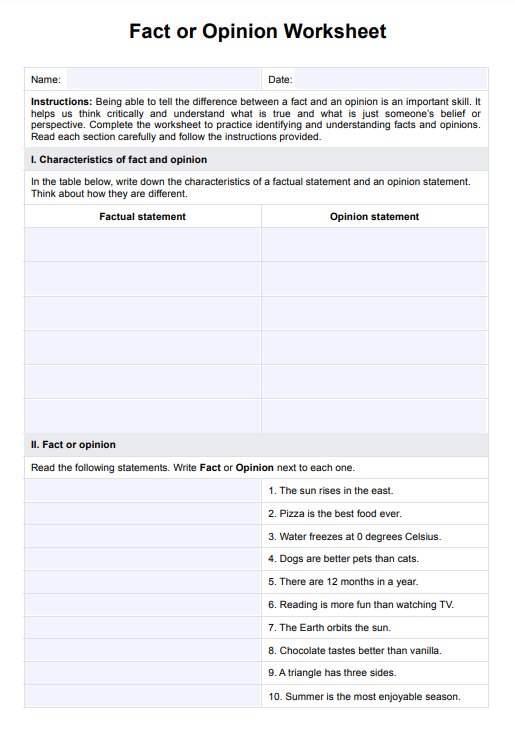Fact or Opinion Worksheets enhance critical thinking by teaching students to differentiate between facts and opinions.

Fact or Opinion Worksheet
Enhance students' critical thinking and analytical skills with our Fact or Opinion Worksheet. Get this free resource today!
Use Template
Fact or Opinion Worksheet Template
Commonly asked questions
Understanding relevant facts and opinions enhances students' ability to evaluate media content critically, identify biases, and distinguish between news and opinion.
Parents can use these printable worksheets to guide discussions with kids about news, books, or movies and help children practice identifying factual statements from mere opinions.
EHR and practice management software
Get started for free
*No credit card required
Free
$0/usd
Unlimited clients
Telehealth
1GB of storage
Client portal text
Automated billing and online payments











